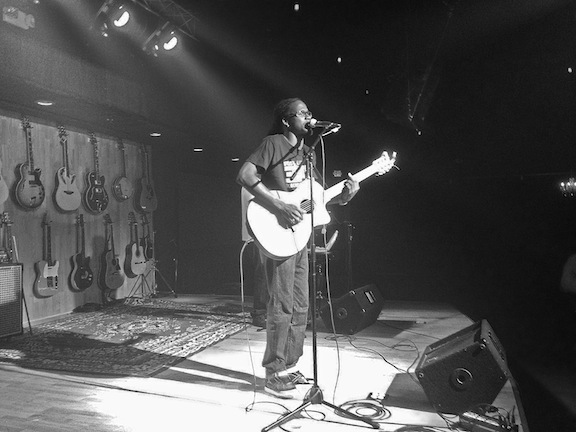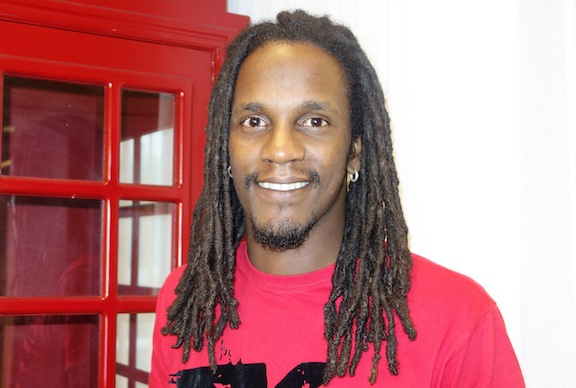Above: Esy Kennenga in Miami (CJ Photo)
MIAMI — He’s one of the most popular singers today from the island of Martinique, and Esy Kennenga’s fame now reaches across the French Caribbean and mainland Europe. The 29-year-old Kennenga, who recently performed a concert at the Avenue D venue in downtown Miami, is one of the more diverse performers from the Caribbean, frequently moving across genres and themes, creating a music that is as Cosmopolitan as it is Martiniquais. To learn more, Caribbean Journal caught up with Kennenga to talk about his latest work, his influences and the music of Martinique.
By Alexander Britell
How would you describe your music?
My music is kind of a mix, firstly of Caribbean music. I used to say, the Caribbean is a mix of different cultures from all over the world by history and by geography. My music is from Bob Marley to Francis Cabrel. I get different influences, like reggae music, local music from my island and the other islands of the Caribbean like Haiti, with Kompa, etc. Also European music, French music. In my music, you can find all of these influences. But I started to sing with reggae music — reggae and dancehall were my first approach.
How much does Martinique play a role in your music?
It’s my roots, it’s where I’m from. It’s important to me to represent where I’m from — it’s my richness, all of the influences in my culture. I can express them in my music in different ways. So I can change the style — it can be slow, it can be reggae or dancehall or R&B style. In Martinique, when you go to a party, you’re gonna hear different styles of music from all over the world — salsa, hip hop, French rap, American rap, different styles. It’s the power of Martinique.
Above: Esy Kennenga
Do you see a more diverse appreciation for music than perhaps in other islands in the region?
In other parts of the Caribbean like Jamaica, you’re gonna hear a lot of reggae and dancehall. I think they listen to different kinds of music, but I know in Martinique, people listen to more different music. For example, in Trinidad, they would really only listen to Soca music. But in Martinique, we have more influences, because we are part French, we are part Caribbean.
And that’s influenced you a lot.
I did my studies in France, so that’s contributed to different influences. I lived for about four months in London, and I’m trying to make my music richer.
How do you achieve that? What are you doing to make your music richer?
It’s about trying to meet other musicians. It’s a way to get my music richer, by meeting new people and hearing new styles of songs. I went to Brazil to make a tour, so I met Brazilian musicians who taught me some Samba music, some Pandeiro, so in my future albums there’s gonna be a Brazilian vibe. For me, it’s normal because we’re used to mixing music at home.
Is there a genre you haven’t tried but want to try?
Yeah, hip hop. But I don’t feel credible on my hip hop yet. Maybe one day I will find a way to make some real hip hop songs.
What are you working on right now and what’s next for you?
I’m going to release my second album in December, and make a big show in France at the Olympia Hall [in Paris] in May, and then prepare an English album in 2015, I think. In 2014, I’m gonna tour to promote the second album.
Do you have a message with your music? Why do you make your music?
My music is a global message: stay positive, be strong, put love in everything you do and trust in yourself to be proud of where you’re from and be really strong in your life. Your life is in your hands. You have to do it yourself, take care of yourself. This is the message you’re gonna find in my music. No matter the theme of the song, I try to see the positive side, the positive way.

